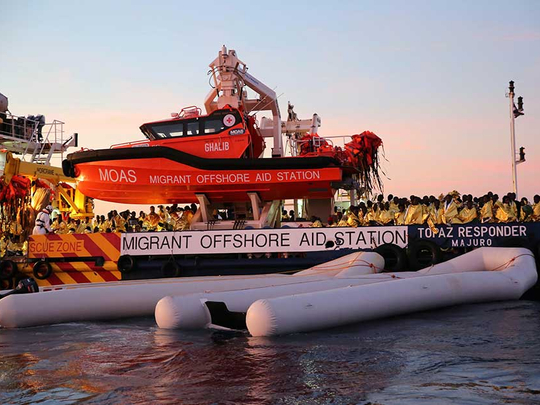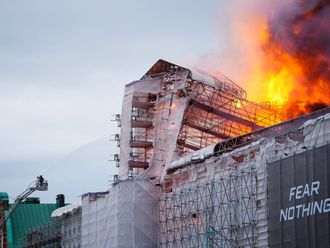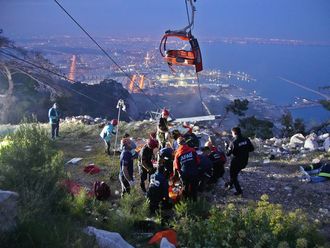
Rome: Aid groups helping rescue migrants in the Mediterranean on Friday accused the European Union of being in denial over the unprecedented carnage unfolding on its southern doorstep.
Another deadly week in the waters between Libya and Italy has lifted the tally of migrant deaths at sea since the start of the year to 4,220, higher than the full-year totals for 2014, 2015 or any other year on record, the International Organisation for Migration (IOM) said.
More than 725 more migrants have died in 2016 than at the same point last year, the IOM said.
“In the face of this new and shameful record, the European Union cannot continue to pretend nothing is happening and make itself an accomplice to this ever greater tragedy,” said Tommaso Fabbri, the Italy head of mission for medical charity Doctors without Borders (MSF).
“There is an urgent need for safe and legal ways for desperate people to reach safety in Europe without risking or losing their lives.”
MSF ship the Bourbon Argos rescued some 867 people on Friday, including 119 women and eight babies, four of whom were only a few months old.
The IOM’s Federico Soda said the rise in the number of deaths this year was partly due to the impact of three major shipwrecks in April and May which claimed 1,400 lives and an unexpected surge in migrant trafficking in October.
“October is generally a month of bad sea conditions, which inevitably cause more incidents,” he said.
“In Italy, we saw a new record for arrivals in October — 27,388 this year, compared to 8,915 in 2015 and 15,264 in 2014. With a larger number of boats, there is also a higher risk of shipwrecks,” he added.
Migrants arriving in Italy have attributed the October surge to a belief that the Libyan coastguard will soon take over some of the search and rescue patrols off its shores, raising fears anyone picked up at sea will be returned to the conflict-torn North African state rather than taken to Italy.
“Basically migrants do not want to be taken back to Libya, where they risk falling back into the vicious cycle of violence and abuse that they are fleeing,” IOM spokesman Flavio Di Giacomo said.
He told AFP EU governments were making the mistake of seeing the crisis only in terms of what are “manageable” numbers of migrant arrivals.
“You have to look at the whole picture and what they are not seeing at the moment is the humanitarian emergency of people dying at sea and in the desert and at the hands of traffickers,” he said.
Malta-based private rescue operation MOAS also called for Europe to change tack on the crisis.
“In the face of an unprecedented death toll, we must find alternatives for people fleeing violence, persecution and poverty,” a spokesman said.
The high rate of departures from Libya has continued into November. Italy’s coastguard said it had coordinated 10 rescue operations on Friday, in which a total of 1,200 people, including those saved by MSF, were picked up.
There were no reports of further casualties following two incidents on Thursday in which up to 240 people, including at least three children, are feared to have drowned.
Survivors from one of those boats described being forced to continue their journey at gunpoint after they asked to turn around when they hit rough sea conditions shortly after their departure.












